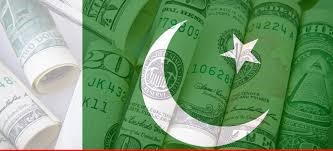INP-WealthPk
Sajid Irfan
Remittances and foreign direct investment (FDI) inflows to Pakistan decreased in the first four months of the fiscal year 2022-23, which weakened the foreign reserves.

Dr Javed Iqbal, Professor at School of Economics, Quaid-i-Azam University Islamabad, told WealthPK that in the first four months of FY23, workers' remittances were recorded at $7.7 billion with a decrease of 6.3%. On a month-over-month (MoM) basis, remittances decreased by 10.5% in September 2022 to $2.4 billion as against $2.7 billion in August.
Pakistan’s remittances from Saudi Arabia stood at $1.889 billion, the United Arab Emirates $1.461 billion, the United Kingdom $1.089 billion, the United States $816.8 million, other Gulf Cooperation Council (GCC) countries $877.1 million, the European Union countries $828.8 million, and Malaysia $37.6 million.
Dr Javed said foreign remittances play a major role in increasing foreign exchange reserves and reducing the current account deficit (CAD). He said remittances have a positive impact on Pakistan’s economy through improved balance of payments and reduced dependence on external borrowing.
Dr Javed said the inflow of remittances has a positive impact on the economy in shape of investment, poverty reduction, decrease in inflation, foreign exchange reserves, enhancing human development through education and health, etc. It is imperative to acquire strong and beneficial skills to increase remittances, including education, IT and computer knowledge, and other skills.

Dr Javed mentioned that the FDI was $253.4 million in the first four months of fiscal year 2023 compared to $479.2 million in the corresponding period of last year with a decrease of 47.1%. On a MoM basis, the FDI was recorded at $83.9 million in September 2022 as against an inflow of $110.7 million in August 2022.
Pakistan received $59.7 million FDI from the UAE, $57.2 million from China, $34.9 million from Switzerland and $23.2 million from the Netherlands. The power sector attracted the highest FDI of $126.5 million, financial business $74.4 million and oil and gas exploration $16 million.
Dr Javed said the FDI produces a positive effect on economic growth in host countries. “One convincing argument is that it consists of a package of capital, technology, management, and market access. The other positive impact is that it increases the host country’s exports to a maximum level and decreases imports to a negligible level," Dr Javed said.
He said that Pakistan’s current policies on foreign investment are not very attractive. He said the availability, reliability, and cost of infrastructure facilities are essential ingredients of a business environment conducive to foreign investment. He said Pakistan compares unfavourably in infrastructure facilities with other developing countries that have attracted higher levels of foreign investment.
“The external environment is already very challenging for many emerging markets and developing economies. The sharp appreciation of the US dollar adds significantly to domestic price pressures. Capital flows have not recovered, and many low-income and developing economies remain in debt distress,” he added.
Credit : Independent News Pakistan-WealthPk



